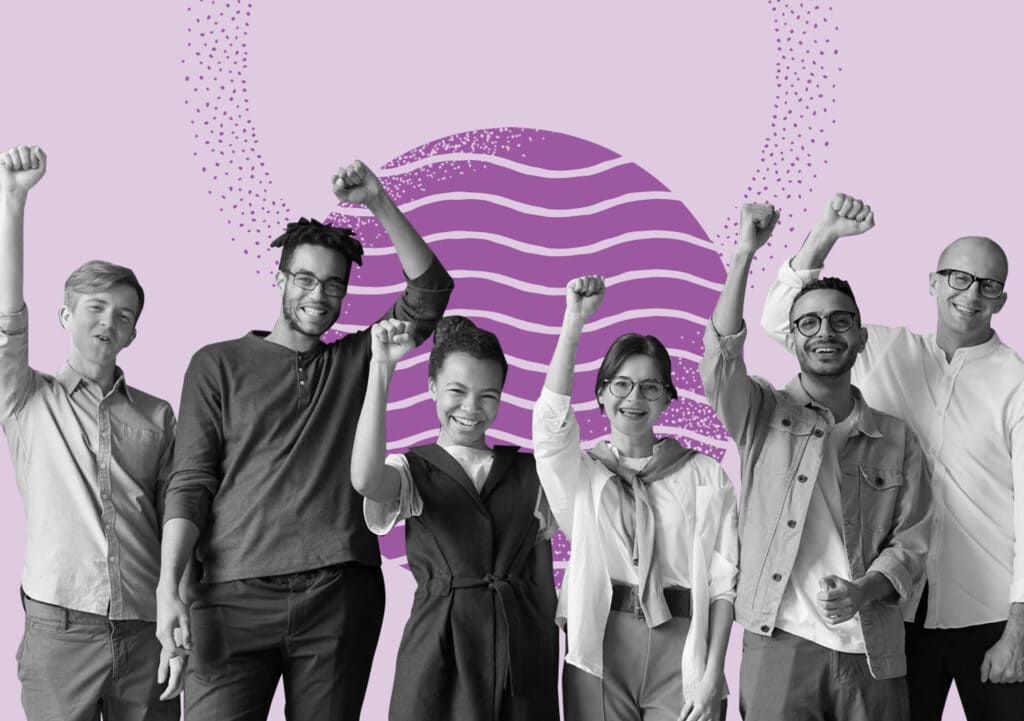How often have you been in a group of “seasoned” employees or HR professionals and heard words like these and phrases such as, “They want daily feedback – who has time for that!” thrown around and accompanied by an eye roll? Something happens when we start to discuss millennials that seems to age us, and then we start to use sentences beginning with “In my day…”
There is a perception that millennials are challenging to lead, engage, and retain. However, can we really define such a large group of people this way?
So in my day, was I different from a millennial?
Thinking about “my day,” I knew that unless I wanted to be a doctor, veterinary, or lawyer, my degree could basically be in anything, hence my immersion for four years in Byzantine and Ancient History studies. I hadn’t yet heard of Human Resources, much less thought of it as a career path. I didn’t expect to get a job based on my education, but I did expect to get a job.
When I worked in the UK, I moved jobs every 18 months. I felt that in order to learn and grow, I had to keep moving, which was the culture encouraged at the time. Spending too long of a time in one position was assumed to indicate a lack of ambition and drive.
For transparency sake, I also scored 82% in the How Millennial are you? survey.
So perhaps it isn’t so much about when you were born, but which stage of life you are currently at in your personal journey.
The stages of your professional life
We are all individuals on our own individual paths but simply put, these tend to be the typical stages of our working lives:
Stage 1
You want a “proper” job. (i.e. a full-time, permanent role with benefits that pays you enough to afford to live on your own or with friends.)
Stage 2
You want an engaging job with an organization that shares your values and that you want to learn from and grow with.
Stage 3
You want to earn enough to achieve those life milestones, including buying your first home, getting married, and starting a family, while still holding true to the things you wanted at Stage 2.
Stage 4
You want to reach Stages 2 and 3 and be able to save enough for retirement, to feel valued, to be proud of where you work, and to continue to learn and grow, and so on, and so forth.
So is anything different today than before?
It seems that millennials want to reach Stage 1, but don’t want to achieve it without also simultaneously reaching Stage 2. To be honest, I wasn’t thinking of corporate responsibility or giving back to the community — I just wanted to earn a pay cheque at the same time.
In my own personal experience, I see articulate, smart individuals with Masters or PhDs applying for entry-level jobs because the unpaid internships they have been forced to take are not enough to sustain them. Once they are able to obtain that elusive paid role, they become dissatisfied as they have so much more to offer and most organizations aren’t large enough to provide them with those growth opportunities.
When I worked in the U.K., new graduates were courted to join internship programs where talent and altitude were rewarded by a paying job, mentorship and development. They were not expected to know everything at once but the roles they were given challenged them intellectually and played to their strengths. The hope was that the individual would stay once they had completed two years of coaching and obtained technical skills, but if not they had now had the skills to go along with their education to create a career path and move onwards and upwards.
Are millennials so different from the rest of us?
Everything that we are told a millennial wants also lines up with what non-millennial employees want, including:
- A company they feel proud to work for that matches their own values
- A welcoming environment where they are not patronized due to age, experience, or perspective
- A living wage and appropriate benefits
- A challenging role that helps them learn and grow
- A place where their ideas are heard and respected
- A safe space to make and learn from mistakes without judgment
- The autonomy to be productive and produce high-quality work
- Work flexibility, with the ability to work where and when you feel most productive
- Work-life integration, so that workers can balance their work projects with their personal commitments and other passions
- Professional development opportunities
- Mentorship and coaching
- Continuous learning
- Constructive and meaningful feedback
- Diversity of thinking
- Transparent communication and input into decision-making
Thank a millennial
While previous generations may have felt that all of the above are earned privileges, millennials expect a workplace that encompasses all of these factors as the norm. This pushes us as employers to provide this culture for all of our staff. So, the next time you may be feeling frustrated, be grateful for those millennials that pushed for the changes that are benefitting everyone and look for more improvements to come as they become the leaders of tomorrow.



